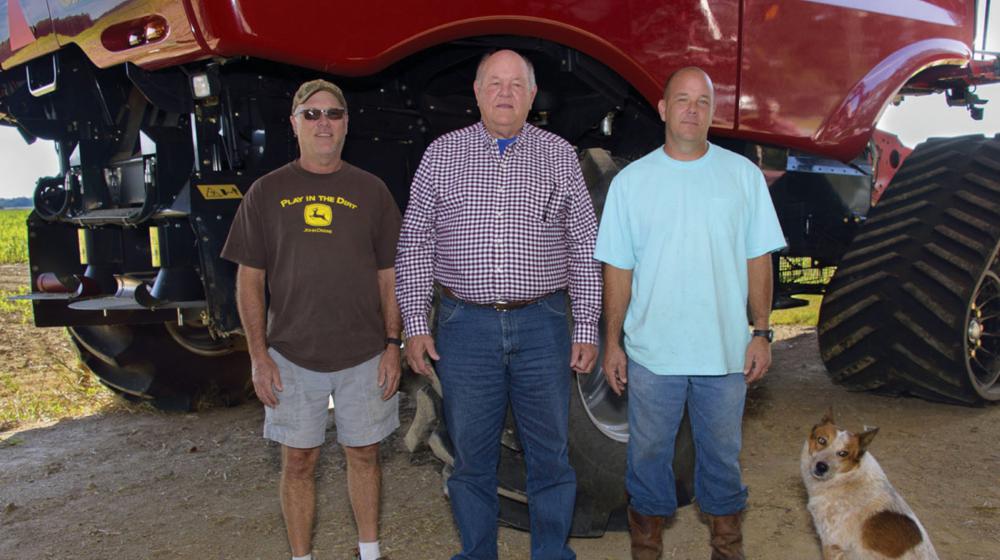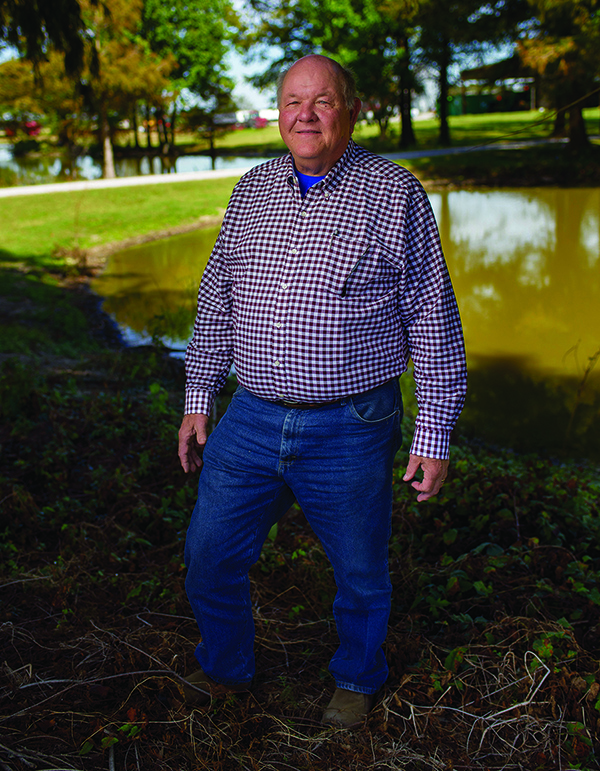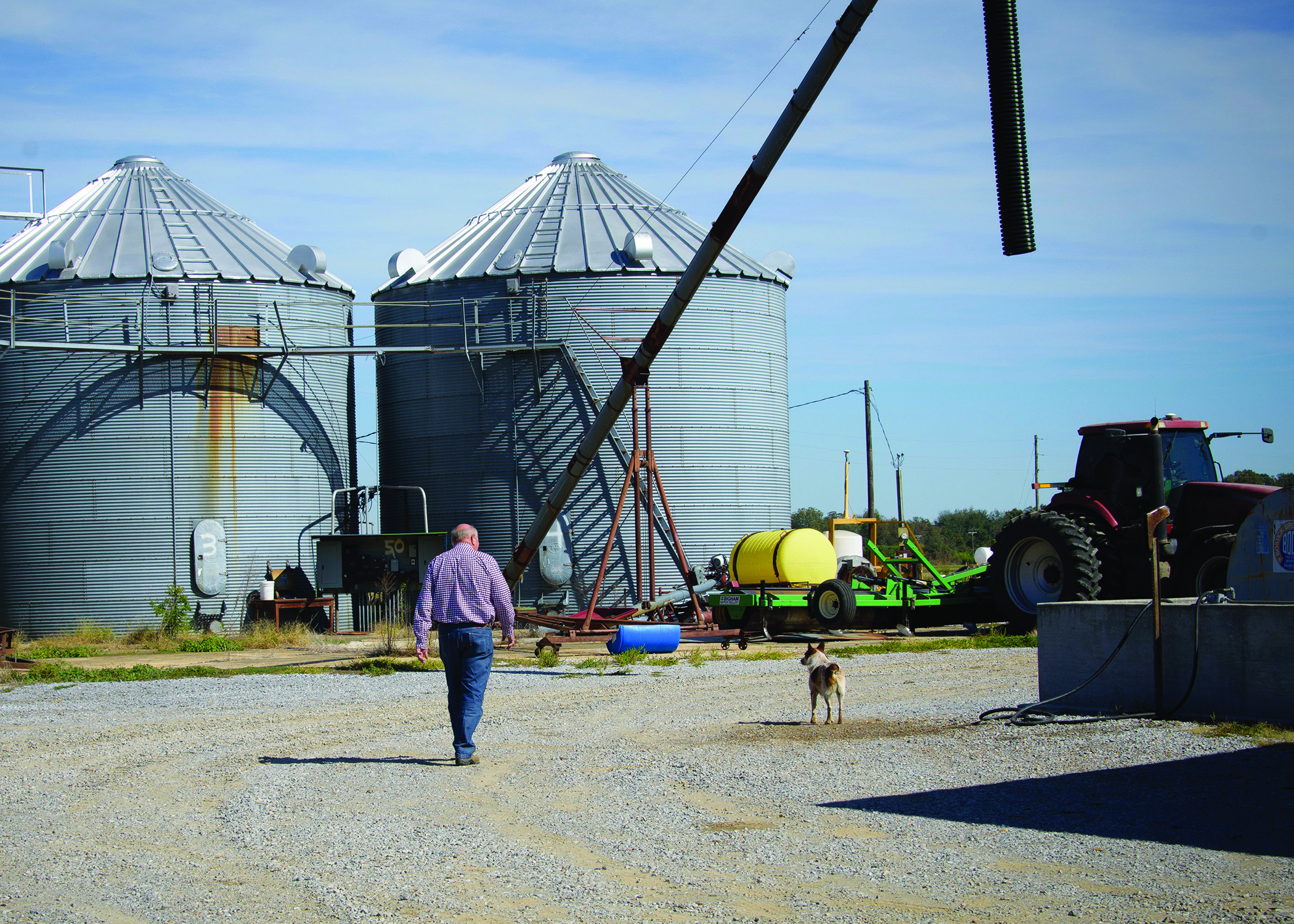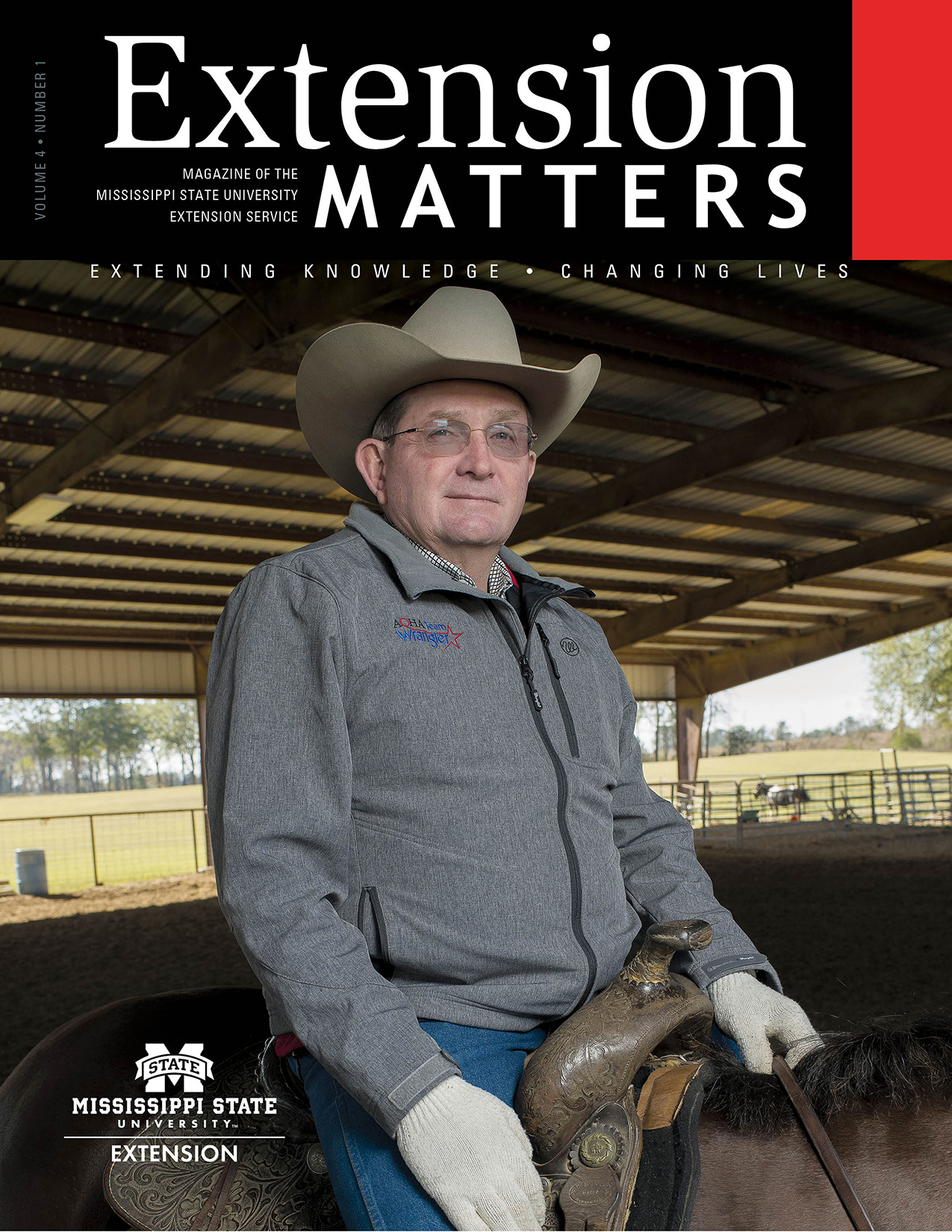Delta True


Donald Gant Looks to the Future
Story by Keri Collins Lewis • Photos by Kevin Hudson
Just because something happens by chance doesn’t mean it’s a bad idea.
After more than a decade of farming with traditional methods, Donald Gant started no-till farming in 1981 on some rented ground.
“We’d had a wet spring, and that land had grown up in weeds to the point we couldn’t do anything with it,” Gant explains. “So we sprayed and planted. That field made the best soybean yield we’d had there, so we decided to keep doing no-till.”
In the 30-plus years since his first no-till crop, Gant has kept up with its performance. Whether he plants corn or soybeans there, the yields average among the highest of all the fields that Gant farms with his sons, Mike and Scott. In fact, Gant shares, 5 years ago, they had the best crop ever, and each year since then has been a little better than the one before.
“When you can go stick a shovel in the ground and dig up an earthworm, it’s working,” he asserts. “For the most part, we are no-till or minimum till. It’s good for the ground.”
The Gants adjust their farming plans based on a combination of factors, including soils, productivity, and profitability. For example, they farmed catfish for 21 years in ponds they built themselves on land with a heavy yellow gumbo soil. When the catfish industry declined, they opted to put those acres in the U.S. Department of Agriculture’s Conservation Reserve Program.
“Conservation is important, and you hear a lot about farmers taking care of the land,” Gant says. “Farmers want to hand their land down to their children and grandchildren. If you find a farmer abusing his ground, he’s not going to be farming very long.”
Doing what is best for the asset extends to water and other natural resources for this second-generation Delta farmer, who joined his father in working 320 acres after he graduated from Delta State University. Gant, who is a Farm Bureau vice president and an active member of several organizations, has taken a keen interest in water.
“I’ve been part of the water task force, and, while we have a lot of water in the Mississippi Delta, everybody needs to take care of it,” he says. “Over the years, we’ve used more than is replenished, and we need to balance that.”
He also believes everyone should take an interest in farming.
"The most important thing we raise is our family."
DONALD GANT
“No matter what job they’re doing, farming is still important. We all eat, wear clothes, and build houses and companies. Somebody needs to raise that food, fiber, and timber. It should be important to everyone.”
Gant values the work of MSU Extension agents and specialists and recalls the many times they came to his farm to offer advice.
“We’ve had some great Extension folks in Bolivar County,” he says. “Joe Love and Don Respess were with us a long time and were good friends. We’ve also worked with Walter Jackson, Laura Giaccaglia, Craig Hankins, and many others here and at Stoneville. They’ve always been available and help in any way they can.”
Laura Giaccaglia, Extension county coordinator for Bolivar County, nominated Gant when he served as Mississippi’s candidate for the Swisher Sweets/Sunbelt Expo Farmer of the Year in 2009.
“Mr. Donald is a wonderful advocate for Mississippi farmers,” she shares. “Now that his sons run the day-to-day operations of the farm, he has more time to promote producers’ interests across the state. He represents many organizations, and we value his support of Extension.”
Gant appreciates the science-based information Extension provides.
“I put Extension and research together, because the research is no good if it doesn’t get out to folks, and the information is no good if it doesn’t have the science behind it,” he explains. “We get different opinions from seed companies and chemical companies trying to sell us stuff. But Extension has the research to back up what they say, and it’s supposed to be an unbiased opinion.”

This interest in science-based practices, as well as his experience-based vision of agriculture’s potential, have made Gant a well-respected leader.
“Mr. Gant’s name has become synonymous with the lifetime of determination, dedication, and innovation he has given—not only to his farming operation but to the entire ag industry, and to his faith, his family, and his community,” says Craig Hankins, Extension agent in Bolivar County.
Gant’s love for his family and commitment to agriculture are evident.
“Farming is a great family life, because of the important lessons you can teach your kids,” he shares. “Even my daughter, Cindy, drove a tractor when she was young. She still could. You can teach them that work is valuable, that you need to get it done to the best of your ability, whether or not someone is standing over you making you do it. The Lord has blessed us with a good life, and we own most of our ground now.
“The most important thing we raise is our family.”


